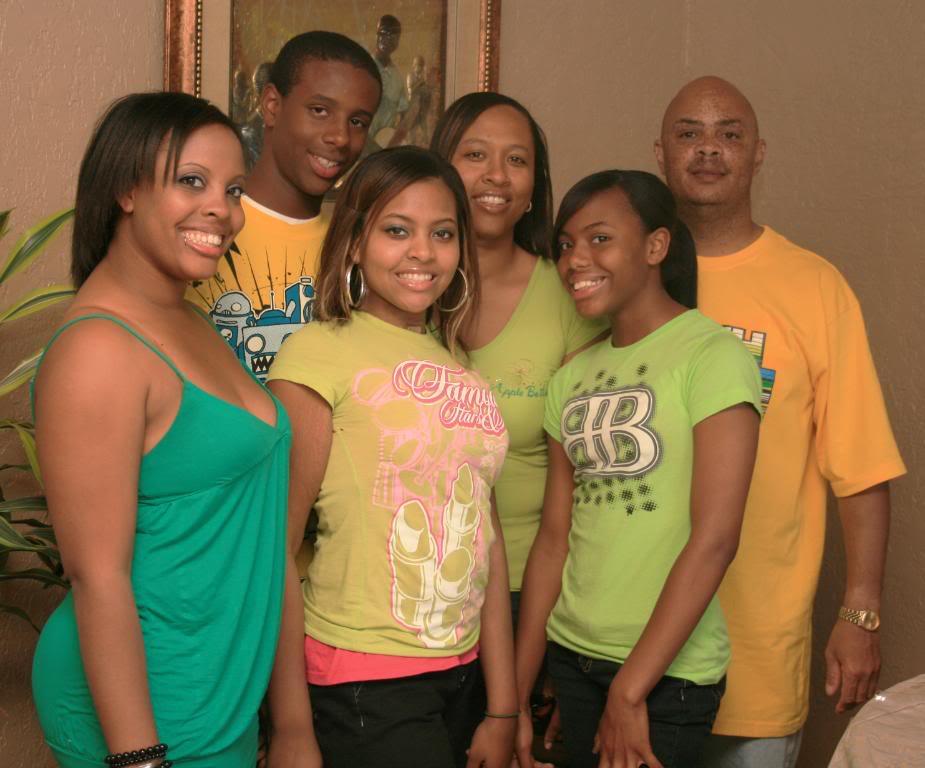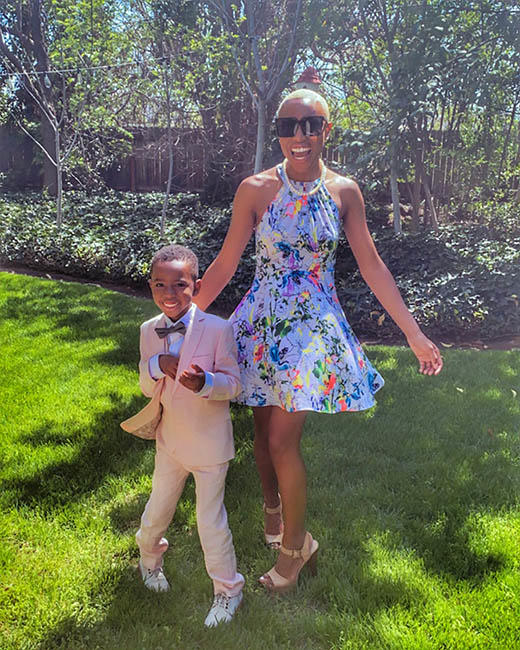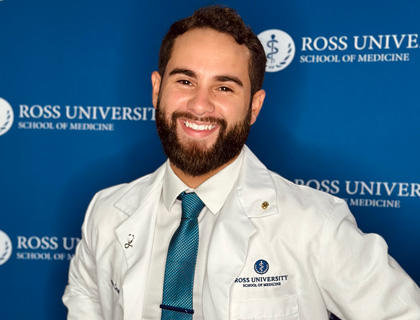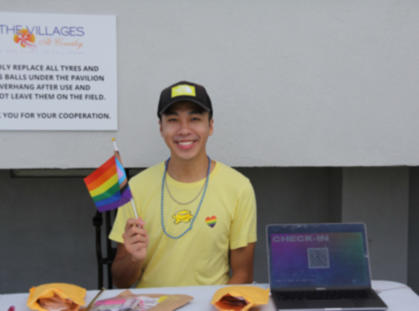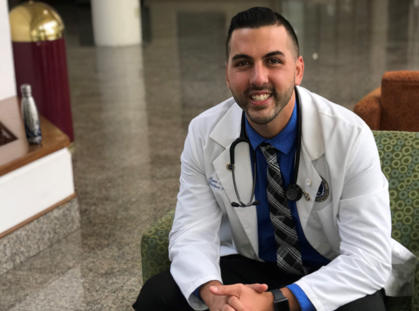Last year, Ross University School of Medicine (RUSM) outlined its Social Justice Commitments. We promised to educate ourselves and advocate for others and continue to advance our goal of creating a more inclusive RUSM environment free from racism, discrimination, prejudice, injustice, disparities and inequities. Hear how one student hopes to change the demographics of Black female neurosurgeons.
At 9 years old, RUSM fourth-year student Ashia Hackett knew she’d be a neurosurgeon. That was the age she began the challenging journey of supporting her sister, Mariah Hackett, through four different brain surgeries over six years, complicated procedures that required her family to uproot residences and comfort her for months-long stays.
“The hospital became my second home,” recalled the former Californian. “When I started clinicals at RUSM, there was a certain comfort because it was all I knew growing up.” The process also taught Ashia about how fragile diagnoses can be and the importance of ensuring accurate information. “They thought Mariah had an aneurysm on the brain stem, but it turned out to be a brain tumor of blood vessels on her brain stem,” which required more intricate surgeries and meant tougher recoveries. If all went well, remissions lasted about 12 months before symptoms reappeared and the process began again, usually with varying nuances and further complications. Ashia recalls rotating rounds with her two siblings to change tracheotomy tubes, connect ventilators at night and always prepare for the unexpected.
“I didn’t realize just how involved I was in Mariah’s medical care until I wasn’t,” said Ashia, who was 14 years old when her sister passed away. “One amazing part throughout those years was watching the intimate connection between our family and the nurses, doctors and surgeons and the impact each of them had. I knew that I wanted to provide families with that same level of comfort and assurance.”
Value of Self-Care
This past year also taught Ashia the relevance of wellness and self-care, something nondescript when she was younger. “I just took everything I’d been through and flipped it into what would motivate me in the future so it would keep me focused on the goal. But I found out that wasn’t the case for my entire family.” After her sister died, Ashia’s father moved out of the family home, her mom unfortunately had to drop out of medical school to care for the family and her siblings each coped individually.
Ashia uses lessons learned to help peers and others she’s met along her journey. “The trauma I experienced has helped me connect with other students. I have gone through therapy and learned different coping mechanisms that I can share with others who may be encountering obstacles. I hope to do the same with patients — to let them know I’ve experienced a similar situation and provide them with the tools I used. I can give them both a doctor’s and patient’s perspective.”
Now having worked closely with attending physicians and residents in the Neurosurgery Department at the University of Miami, Ashia found her niche. “I’ve been holding onto the neurosurgery dream from a young age and didn’t know if I had just glamorized it but getting involved has confirmed this is the field for me.” She received the university’s Black Lives Matter Neurosurgical Fellowship earlier this year. As part of the award, she was interviewed and quoted in Industrial News magazine.
Increasing the Odds
The single mom who enjoys event planning recently applied for the 2022 National Resident Matching Program® (The MATCH ℠) process and hopes she can boost diversity in the field. According to a January 2021 report from the National Center for Biotechnology Information, US National Library of Medicine National Institutes of Health, 4% of neurosurgeons in the US are Black/African American and 0.6% of them (33) identify as African American and female.
“Being able to see someone who looks like you can make a huge difference when it comes to trust and comfortability,” Ashia said. “I remember seeing doctors operating on my sister and thinking if I had seen a Black woman, it would have been unimaginable. I want to be the person I envisioned and show the younger generation that doctors come in all different shades with different styles and personalities.”
Wellness Resources
RUSM’s wellness and counseling teams are available to support students one-on-one or through webinars, workshops and other activities, hosted by Campus Life in Barbados, Clinical Student Affairs in Miramar, FL and several student-managed organizations. Wellness resources — free and confidential — are available for all medical and clinical science students. For more information, please email rusmwellnessandcounseling@rossu.edu.

